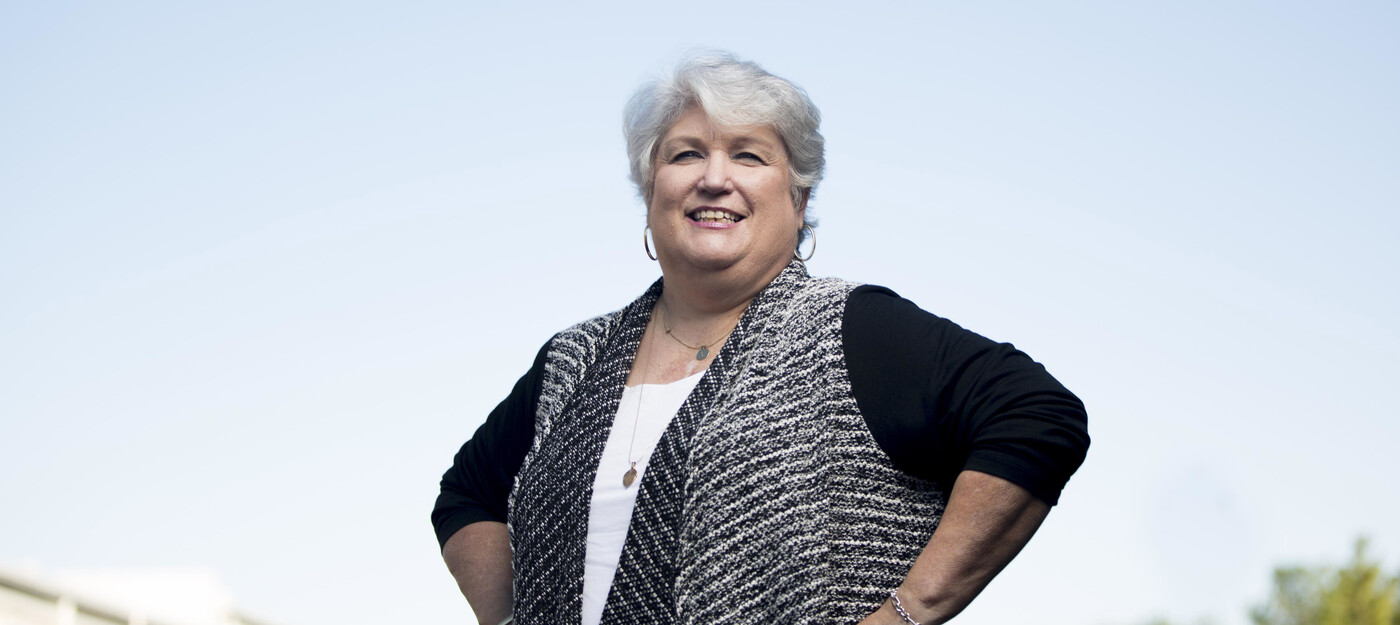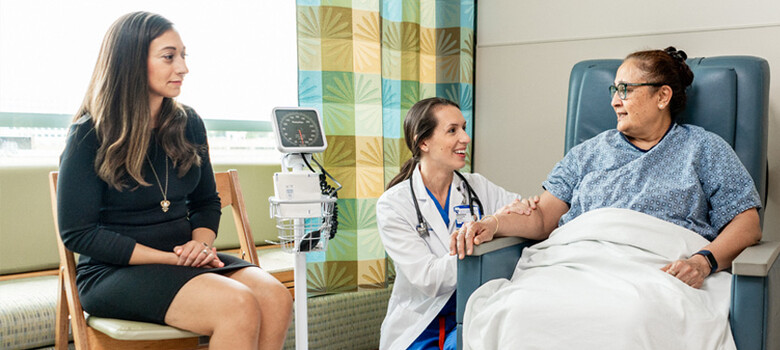 From the DukeHealth.org archives. Content may be out of date.
From the DukeHealth.org archives. Content may be out of date.
Women's Intuition Detects Heart Trouble

In the early months of spring 2013, Suzanne Lambert felt overwhelming stress as she cared for her aging parents and helped to plan her daughter’s wedding. When she began experiencing shortness of breath and chest pains, Lambert had a nagging feeling something serious could be wrong.
“I thought I should check things out,” said Lambert, 59, of Henderson. “I just felt like something wasn’t right. I knew I shouldn’t get out of breath so easily.”
Lambert went to see Duke cardiologist Dr. Melissa Daubert, MD, who ordered a stress test. The results were concerning, so Daubert followed up with a catheterization. The procedure showed significant blockages in Lambert’s three major coronary arteries. She underwent triple heart bypass surgery on April 19.
Less than two months later, on June 5, 2013, Lambert danced at her daughter’s wedding.
“It is impossible to say with 100 percent certainty Suzanne would have had a heart attack, but she was certainly at increased risk for one,” Daubert said. “Her coronary artery disease put her at risk not only for a heart attack but also for reduced cardiac function and possibly heart failure. Undergoing bypass surgery helped to circumvent those blockages and make sure her heart got the blood and oxygen it needed to continue to function properly.”
Know the Symptoms of Heart Disease
Heart disease is the leading cause of death among women, claiming more lives than all types of cancers combined, according to the American Heart Association (AHA). The AHA estimates that 43 million U.S. women have some form of heart disease.
While many women experience similar symptoms of heart disease as men— chest pain or pressure, pain in the left arm and shortness of breath—they also may present with other symptoms. Women frequently have pain in the abdominal region or in the jaw. They also may experience nausea and fatigue. Sometimes, they have a sense of fear or a feeling of impending doom.
“Women can have very nonspecific symptoms of heart disease, so it can be hard to diagnose,” Daubert said. “There’s also evidence to suggest that women tend to attribute their symptoms to something else other than a heart issue. They tend to delay seeking medical care.”
Be Aware of Your Heart Disease Risk Factors
Typical risk factors for heart disease include high blood pressure, high cholesterol, diabetes, smoking, obesity and a family history of heart disease. Women also have additional risks due to hormonal fluctuations, particularly during pregnancy or menopause.
A few heart conditions are unique to women, including postpartum cardiomyopathy, which is a weakness of the heart muscle that begins near the end of pregnancy and continues for several months after delivery. Women also are more prone to stress cardiomyopathy (also known as “broken heart syndrome”), which may result from a physically or emotionally stressful incident, such as the death of a loved one or a natural disaster.
Lambert had several risk factors, including high cholesterol and high blood pressure. She also had a family history of heart disease. Her father had triple bypass heart surgery at age 54, and a nephew had triple bypass heart surgery at 24.
“Women should be aware of their risk factors and if they’re not sure, they should be evaluated by their primary care doctor or cardiologist,” Daubert said. “It’s a struggle for any patient to keep up with exercise and a proper diet—but it’s especially difficult for women because they typically are the ones providing care for family members. Life can get in the way sometimes. That’s why it’s important to follow up with your doctor, who can remind you of your goals to maintain good heart health.”
Managing Heart Disease With Lifestyle and Medication
Lambert had a positive experience at Duke, and is grateful for the care she received during her hospitalization, as well as in the clinic.
"My patient experience at Duke was absolutely phenomenal,” says Lambert, who became a first-time grandmother to a baby girl, Leighton, in September. “Everyone at the hospital was extremely good to me. They were knowledgeable and so nice. It was a positive experience.”
Lambert’s condition is managed with medications, as well as lifestyle changes. She and her husband, Dennis, have adopted a heart-healthy diet and try to exercise more frequently.
“I’m so thankful I had the knowledge to get my heart checked out rather than finding out I had heart disease after having a heart attack,” Lambert says. “For others with heart concerns, I would say, ‘Listen to your body—it can tell you if something’s wrong. Don’t be embarrassed or afraid to check on it.’"



